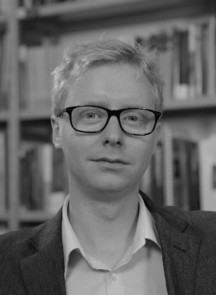- Home
- Project overview
- Solar energy
- Senegal: Clean Energy from Solar Systems
- Mali: Rural electrification with PV-Mini-Grids
- Brazil: Agriphotovoltaics in the village of the indigenous Pankará
- Mongolia: Heating with solar electricity
- Madagascar: Clean solar power replaces heavy fuel oil power
- Kenya: Solar water desalination system
- Madagascar: Solar powered rural electrification program
- Dominican Republic: Harnessing Solar Potential to Increase Energy indpendence
- Nigeria: Clean energy for rural electrification
- Iraq: Power supply for the refugee camp Mam Rashan
- Solar Power for the refugee settlement Domiz 1 in Iraq
- Madagascar: Clean electricity and organic food
- Lesotho: Solar Home Systems
- Ethiopia: Solar Home Systeme
- Indonesia: Solar powered water desalination plant on an island
- Ghana: Innovative distribution system for solar home systems
- Sambia: solar-powered irrigation system for smallholder farmers
- India: Solar Thermal Power Plant
- East Africa: Electric Public Transport
- Morocco: Solar Drip Irrigation for Smallholder Farmers
- Tanzania: Cooking with Solar Electricity
- Togo and Burkina Faso: Decentralized solar drinking water networks in West-Africa
- Solar Power for the refugee settlement Domiz 1 in Iraq
Solar Power for the refugee settlement Domiz 1 in Iraq
Trained researchers conduct interviews with camp residents
Recent graduates from American University of Kurdistan and University of Duhok receive training for the conducting of interviews
Camp residents are interviewed.
Summary
| Technology transfer : | Electricity generation with a photovoltaic system with battery storage |
| Local environment : | Improvement of air quality by reducing the usage of fossil fuels |
| Further advantages : | Education/ Employment, energy efficiency measures and training for residents of the camp, reliable energy source without frequent blackouts |
| Project partners : | Project partners: United Nations High Commissioner for Refugees (UNHCR), American University of Kurdistan (AUK), Selco Foundation |
Sustainable Energy Solution
The American University of Kurdistan, in collaboration with atmosfair gGmbH, conducted a feasibility study to investigate the potential for implementing a sustainable energy solution in the Domiz 1 refugee settlement. The study is funded by the United Nations High Commissioner for Refugees (UNHCR) and will examine how solar energy can be used to provide clean, affordable and efficient electricity for Domiz 1 residents as well as promoting renewable energy in the region. The outcome of the study shall be used to gain investors and identify stakeholders to improve the energy supply within Domiz 1 with solar energy.
Background of the Project
The initiative was launched by Dr. Jack R. Williams, American University of Kurdistan (AUK) and Nele Erdmann, atmosfair. The study builds upon atmosfair’s experience in installing a PV-system at the Mam Rashan camp for internally displaced persons (IDP) in the region, which has been operating since 2018. The initiative is in line with the recent efforts and strategies of the Kurdistan Region of Iraq (KRI) and the UNHCR to develop new renewable energy sources. Global action on tackling climate change is gaining new urgency also in the humanitarian sector. Therefore the United Nations launched in 2018 a Global Platform for Action to specifically promote Sustainable Energy in Displacement Settings (GPA). In this context UNHCR and International Renewable Energy Agency (IRENA) already used Domiz 1 as a case study for ‘renewable energy solutions in humanitarian situations’. The result of the study shows that there is a need for a more reliable and environmentally friendly energy source in the camp, which was further investigated in the current feasibility study.
Current Situation in Camp
Residents at Domiz 1 already receive electricity from the national grid, however, similar to the rest of the country, the camp suffers frequent blackouts. Additional electricity can be purchased through privately operated diesel generators which are both expensive and pose serious environmental and health risks. Nearly none of the residents can work in their original field of education and earn much less than prior to when they became refugees. Especially during the COVID-19 crisis, camp residents suffered from their dependence on the costly diesel generator with many households losing their main source of income.
Feasibility Study
The study includes an assessment of the technical feasibility of introducing solar energy into the camp as well as the social economic situation of residents. The aim is to provide a convincing case for the introduction of solar energy through a combination of private and public financing. The study also highlights how to generate new job opportunities through the implementation of solar energy within the camp based on the experience of Mam Rashan, where camp residents are involved in the construction and operation of the solar plant.
The feasibility study is based on experience, international best practice, interaction with the camp management and detailed field research. Recent graduates from AUK and University of Duhok were recruited as junior field researchers. The researchers received a week of training on the conducting of interviews put on by members of the AUK, UNHCR, atmosfair and the Selco Foundation. Alongside members of atmosfair the researchers have been conducting interviews with camp residents exploring the cost and their use of electricity. The team installed an additional three electrical metres to track the electricity demand over 2 months.
The results of the study are available here.
American University of Kurdistan (AUK)/Institute for Global Negotiation

Dr. Jack R. Williams
Adjunct Professor of International Relations
American University of Kurdistan (AUK)/Institute for Global Negotiation
jack.williams[at]auk.edu.krd
Your contact at atmosfair
Nele Erdmann
Senior Project Developer
Dipl. Wi.-Ing. Energy and Environmental Management
+49 (0)30 120 84 80 - 63


 Share
Share Tweet
Tweet